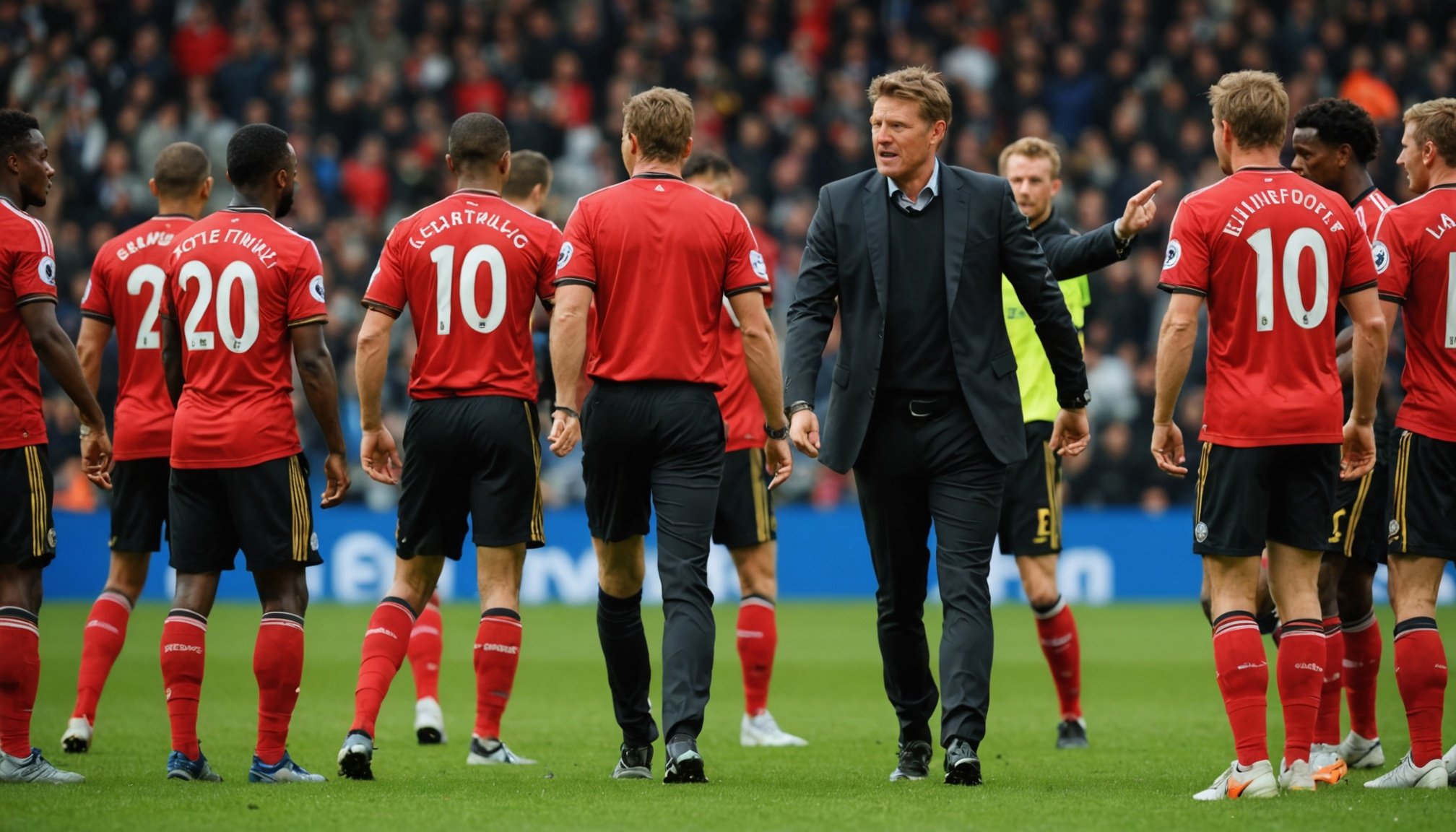Understanding Team Spirit
Team spirit significantly influences both individual and group performance, serving as a cornerstone for success. A vibrant team morale enhances cohesion and leads to better collaboration, while low morale can lead to conflicts and reduced efficiency.
Several factors influence team morale, including leadership style, communication effectiveness, and the overall team climate. Leaders who foster inclusive and participatory environments often see enhanced team dynamics. Active listening and valuing each team member’s input can further nurture a positive atmosphere.
Topic to read : Championing Player Success: Effective Strategies for Football Clubs to Support Athletes in Professional Sports
The psychological aspects of a positive team environment offer numerous benefits. High morale boosts confidence and creates a sense of belonging, which can translate into higher motivation and commitment to shared goals. A team with strong morale is better equipped to handle challenges, showing resilience and adaptability under pressure.
Psychologically speaking, being part of a supportive team can reduce stress levels, increasing job satisfaction and personal well-being. Creating a culture where team members feel valued and appreciated cultivates a robust team spirit that can lead to sustained success. Understanding these dynamics allows leaders to implement strategies that reinforce positivity and performance.
Topic to read : Cultivating Player Loyalty: Innovative Contract Management Strategies for Football Clubs
Communication Techniques for Coaches
Effective communication is pivotal in enhancing team spirit and performance. Establishing open dialogue is the first step towards a cohesive team environment. Coaches can promote transparency by fostering an atmosphere where team members are encouraged to express their thoughts and concerns freely.
Establishing Open Lines of Communication
Open communication can be achieved through regular team meetings where everyone has the opportunity to voice their ideas and feedback. Establishing these lines of communication builds trust, reduces misunderstandings, and solidifies team dynamics.
Utilizing One-on-One Meetings
Another approach is through one-on-one meetings. These sessions offer a private setting for individuals to discuss their personal challenges or successes, providing tailored feedback and fostering a sense of being valued within the team.
Encouraging Team Feedback
Receiving and providing feedback is crucial. Methods such as structured feedback sessions can guide team members in improving their performance without fear of judgment. Constructive criticism, when expressed compassionately, can enhance learning and growth.
By prioritizing effective communication, coaches can significantly improve team morale, strengthening psychological aspects and creating a resilient and motivated team. These strategies empower members, bringing clarity to team objectives and fortifying the backbone of a successful team.
Motivational Activities to Boost Confidence
To ensure a cohesive team dynamic, team-building exercises play a pivotal role. These activities not only strengthen interactions but also inject fun into the routine. Examples include trust falls, escape rooms, and role-playing scenarios, each designed to break barriers and encourage camaraderie.
Fun Team-Building Events
Engagement activities like scavenger hunts or relay races promote participation and create an enjoyable environment. These events are perfect for reducing stress and encouraging teams to work collectively towards a common goal, enhancing overall morale.
Goal-Setting Workshops
Workshops centered around setting and achieving goals foster motivation and instill clear objectives. By collaboratively crafting team goals, members feel a sense of ownership and direction. This method is instrumental in sharpening focus and driving performance.
Celebrating Small Victories
Recognizing and rewarding progress cultivates a positive atmosphere and boosts morale. Celebrating milestones, whether big or small, encourages continuous improvement and establishes a culture of appreciation. Such rewards can be verbal acknowledgments, awards, or small team gatherings. These motivational techniques reinforce confidence and dedication, underpinning sustained success.
Psychological Tactics to Enhance Resilience
Incorporating effective psychological strategies is essential in sports to bolster mental toughness and overall resilience. Such methods are crucial for navigating challenges and setbacks that may arise.
Teaching Coping Mechanisms
Teaching coping mechanisms empowers individuals to manage stress and emotional strain effectively. This involves guiding team members in identifying stressors and developing robust strategies to tackle them. Equipping players with tools like mindfulness and self-regulation can markedly improve their ability to stay calm under pressure.
Visualization and Mental Imagery Techniques
Visualization and mental imagery techniques significantly enhance sports performance. By mentally rehearsing scenarios, athletes can increase focus and precision. This technique not only boosts confidence but also ingrains positive thought patterns, aiding in actual game-day scenarios.
Building a Growth Mindset
Fostering a growth mindset encourages embracing challenges and viewing failures as learning opportunities. This approach nurtures resilience, pushing team members to persist despite difficulties. When players focus on the process of learning and improvement, they are more likely to adapt positively, sustaining long-term development and success. Engaging in reflective practices alongside growth-oriented discussions further cements this mindset, establishing a resilient and robust team.
Success Stories from Renowned Coaches
Exploring the achievements of legendary coaches reveals the integral role of case studies in understanding effective strategies. These stories provide inspirational coaching anecdotes that highlight how successful strategies have elevated team performance. Through these narratives, coaches can glean valuable insights into practical applications that bolster team dynamics.
Overview of Notable Coaches
Renowned coaches like Phil Jackson in basketball and Sir Alex Ferguson in football showcase exemplary leadership that transcends their sports. Phil Jackson, famed for his “Zen Master” approach, harnessed psychological aspects to improve team morale. Sir Alex Ferguson’s focus on building a strong team spirit facilitated long-term success.
Analysis of Their Strategies
An analysis of these coaches’ techniques reveals commonalities like fostering open communication and encouraging a growth mindset. Jackson’s emphasis on meditation and mindfulness aided players in maintaining mental toughness. Ferguson’s weekly meetings reinforced effective communication and feedback, pivotal for sustainable success.
Lessons Learned from Their Experiences
Key takeaways from these stories include the importance of adopting innovative training techniques and maintaining a positive team environment. By prioritising psychological strategies and resilience training, you can cultivate an atmosphere where both individual and team growth are maximised.
Long-term Strategies for Sustaining Team Spirit
Nurturing team spirit requires continuous effort to lead to a resilient and cohesive unit. Implementing long-term strategies ensures sustainability and lasting success.
Regular Team Assessments
Regular assessments are pivotal in tracking team morale and dynamics. These assessments allow leaders to identify and address any concerns promptly. Instituting regular surveys or feedback sessions ensures transparency and fosters an environment of openness. It’s crucial for leaders to remain attentive to these assessments, using the insights gained to make informed decisions.
Fostering a Supportive Culture
Building a supportive culture enhances both psychological aspects and overall team dynamics. Encouraging team members to support one another helps elevate confidence and resilience. This involves recognizing individual contributions, promoting collaboration, and creating an inclusive atmosphere where every voice is valued. A supportive culture also strengthens emotional connections within the team, fostering interpersonal relationships and trust.
Engaging with Team Families
Engaging with team families can considerably boost team morale. By involving families in team events or gatherings, a broader support network is established. This inclusion helps decrease stress levels for members, knowing they have backing beyond the team itself. Encouraging family interactions provides a sense of community, adding an extra layer of motivation and support.











